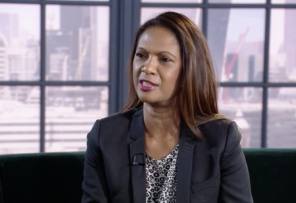

Criticism has been aimed at fund managers who do not take on enough risk in their portfolios, despite fears about the impact of Brexit haunting investment markets.
Yesterday (29 March) Prime Minister Theresa May signed the letter which officially started the two-year process for the UK to leave the European Union.
Many investment veterans expect markets to be wobbly as Brexit negotiations begin, and research from Hargreaves Lansdown found savers had been piling into cash, with money held in cash accounts rising to £176bn today from £163bn in May last year.
But Stephen Jones, the chief investment officer at Kames Capital, has warned the biggest risk facing investors is playing it safe by holding too much cash in their portfolios.
This comes as Neil Woodford recently criticised the asset management industry for becoming more risk-averse.
Mr Jones, who oversees fixed income, property, equity and multi-asset funds, said: “The biggest risk right now is that investors over-worry about disruptive events or financial crises that are unlikely to happen.”
Cash, he said, is a “wasting asset” against a backdrop that is seeing higher growth and inflation.
Even if the so-called “black swan event” did occur, the investment chief was confident the financial authorities would launch a range of counter-measures to buttress economies, markets and investors.
“You see it again and again in the UK when we get ourselves into the most amazing pickles but the institutions of government step in and the machine cranks up and gets us through.”
However, other investment professionals have argued that increasing the cash weighting in times of uncertainty is a wise move.
Ben Kumar, investment manager at Seven Investment Management, said he agreed that holding too much cash is a huge risk for investors, adding: “Telling investors to go to cash is as risky as telling them to put their money in a single market.”
He said 7IM portfolios are currently slightly above the strategic weight in cash, as part of a tactical move, which has largely come from cutting back on low yielding, high quality government bonds, rather than equities.
But Mr Kumar stressed that not taking on enough risk to meet return expectations has very serious consequences, particularly when the end investor is trying to plan for their future.
James de Bunsen, who is lead manager of the £150m Henderson Multi-Manager Absolute Return fund, said he recently increased the cash weighting in his fund, but added: “This was not a wholesale heroic shift based on us thinking the world was going to end.
“It’s about taking profits from holdings that have done really well,” he said, pointing out that he had replaced some of his equity exposure with cash.
“Things don’t go up forever and my funds are focused on preserving capital, so what little amount I had in equity I decided to dial down a little bit.”
Mr de Bunsen described the past eight years as “one of the most hated bull markets in history” which, he said, hasn’t been punctuated by the extreme “animal spirits” of other rallies in the past.
“Cash weightings have been high, but there has been quite a lot to worry about, so I think that’s quite rational.”
The Henderson fund manager said some risks do get overstated, but warned that because interest rates are so low and valuations are so high, there is no “margin of safety”.
“The high cash weightings is a reflection of the fact that the safety net just isn’t there,” he said, adding he would start allocating his cash to holdings again when the markets start looking cheaper.
Mike Pinggera, manager of the multi-strategy fund at Sanlam Four, said he didn’t think it was fair to criticise fund managers who allocate to cash, saying it was the most effective tool for reducing risk in a portfolio.
“While I don’t have much cash at the moment, if a manager was nervous about the markets then holding a bit of cash is a way of expressing their cautious view on the world.”
Ant Gillham, manager of the Old Mutual Generation Portfolios, pointed out that different types of investors face different risks, and said portfolios designed for retired clients hold more cash than investments aimed at clients seeking to accumulate wealth before retirement.
Jason Hollands, managing director of the Tilney Group, said: “We have been running with raised cash weightings and overweight exposure to absolute funds in portfolios compared to our models.
“It’s impossible to predict when the market has peaked and we do not see an imminent catalyst for correction, but this bull market is certainly long in the tooth, and bond and equity valuations are stretched.
“We therefore believe it is right to be mindful of downside risk having made very significant gains.”
Mark Dampier, head of research at Hargreaves Lansdown, said most funds won’t have more than 5 per cent of their portfolio in cash because it’s often not part of their remit, and will risk being criticised by trustees.
“Most fund managers are really bad at increasing their cash weightings at the right time, so by and large I don’t think it’s a great idea to increase cash anyway.”
katherine.denham@ft.com



